Early one morning after a big storm in Sydney, I discovered this car on the footpath beside the river.
For a few moments I imagined it dredged from the river bed by the wild storm surge and surfing the waves over the fence. What an achievement!
But no, the story was not so weird and wonderful. A passing workman told me that the car was there before the storm. It had been driven off the road, set alight, and abandoned. Presumably it was stolen, to have been disposed of in this way. I wonder if the vandals who did it felt a sense of achievement? Pretty sad, really, if an act so thoughtless and destructive could make anyone feel good. What does it say about their lives?
Couldn’t they have pointed their energy towards more positive achievements, such as:
- Learning how to repair cars (since they obviously have an interest in cars)
- Joining the fire brigade (and an even more obvious interest in fire)
- Joining a political party (to find a place for constructive expression of their dissatisfaction with an unfair society)
- Doing a poetry slam or competing in krumping battles or creating street artworks (cos they’re probably young & bored & these would be creative outlets & isn’t that, well, what young people do?)
Maybe they are creative and do have jobs and contribute to their communities. Maybe this was just a bit of reckless, teenaged fun. But, somehow, I suspect there’s more to it than that.
I believe that feeling a sense of achievement is essential to human happiness. From the time we learn to feed ourselves as toddlers, to learning to ride a bike or read a book as children, to getting a job or training credentials as adults, our achievements, and our attitudes to success and failure, shape who we are and give meaning to our lives.
Achieving a goal, no matter how small, can give us a rush — of the pleasure hormone endorphin, of adrenalin, or just a warm buzz of quiet satisfaction.
If someone has to steal and burn a car to get that rush, that says to me that they aren’t getting that feeling from achievements in other areas of their life. Which means that society has failed them, somewhere along the way. Whether through a disempowering school experience, or the pressures of an inequitable economic system, it’s failed them.
That’s why they are burning cars.
Unlike the car thieves, I’m fortunate in having been able to achieve a lot in my life. By coincidence, the weekly photo challenge theme of achievement which inspired this post was issued the same week that I was reminded of one of the achievements that I’m most proud of.
Last Friday I went to the launch of Through Our Eyes, a collection of essays and recollections on the history of HIV in Australia. I’d contributed a couple of pages on my part in that history (p.47, if you’re interested).
For eight years, from 1990 to 1998, I edited a magazine for people with HIV: Talkabout. I facilitated the sharing of their stories, knowledge and insights, at a time when to have HIV was hugely stigmatised, many people with HIV were very isolated, and the life expectancy was extremely poor. Talkabout made a difference to people. It cut through the isolation when people read of others with similar experiences to their own. It challenged the stigma when brave people put their faces on the cover and said ‘I have HIV’. It brought people hope, with stories of activism by people who were determined to get new HIV drugs approved for use in Australia.
In this photo, taken at the International AIDS Conference in July, I’m flanked on one side by photos of some of those activists, and on the other by a few Talkabout covers from the past 25 years, including some that I produced.
Of course, I didn’t do all that on my own. I had an inspiring volunteer editorial team (some of whom died 20 years ago from AIDS), and equally inspiring work colleagues supporting me, all the way. We share the achievements of Talkabout, and many, many people living with or affected by HIV benefited from our collaborations. Talkabout, by the way, is still going strong.
Achieving personal goals like losing weight or running a marathon are important, but for me, the achievements I value the most are those which benefit other people. I feel lucky that I can look back on achievements like editing Talkabout.
I hope one day the car thieves find similar satisfaction in their own achievements — and that the burning car is just a dim memory of a dead end path they could have taken, but didn’t.
“No man is an island,
Entire of itself,
Every man is a piece of the continent,
A part of the main.”
— John Donne (1572–1631)

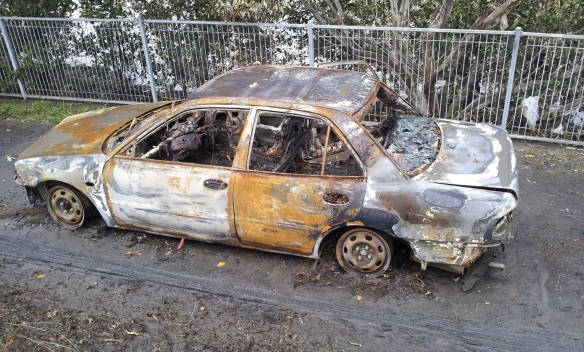
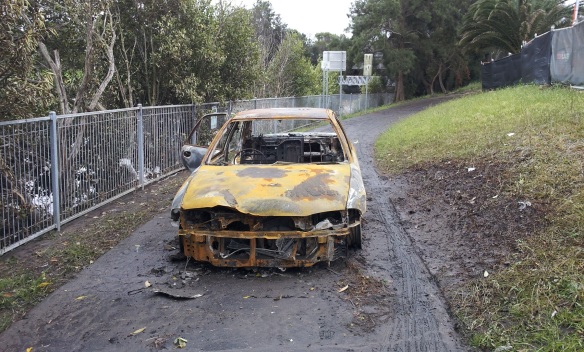
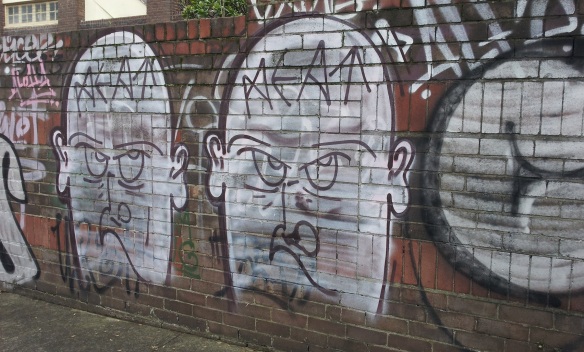
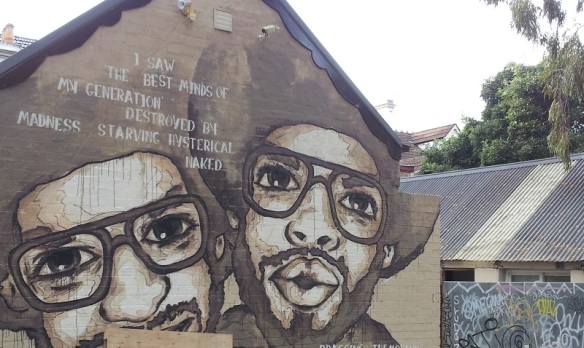
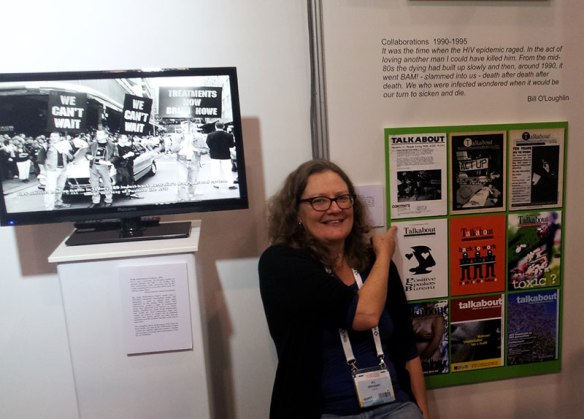
You have touched on a very subtle but significant facet of life. Achievement is such an essential part of our life and living. We are driven by purpose and the accomplishment of it. Such is the fine line of difference with a negative intent the achievement takes an ugly turn which otherwise with positive thoughts makes our life and society a better place. Yes, sometime we question what makes few to get drawn to the destructive side of life rather than cherish the beautiful constructive aspects of life.
Lovely post!!!
LikeLike
Thanks for your comment Nihar, it is indeed a challenge, to find ways to ensure everyone can make more constructive choices in their lives.
LikeLiked by 1 person
Terrible what happened to the car. Emotions run high in the heat of the moment, and sometimes because of that we do things we regret. “society has failed them” – I have to agree with that. It’s a shame that it’s 2014 and a number of us in Australia can’t embrace the fact we have different learning needs and come from different backgrounds.
That is so cool, you wrote a few pages in a book about a very important topic. I suppose your years of editing the magazine and meeting like-minded people affected by AIDs helped you in some way to contribute to the book. I’ve always wondered why people are so afraid of HIV and discriminatory towards it.
p/s: the Through Our Eyes link doesn’t seem to work
LikeLike
Thanks for letting me know about the link Mabel, NAPWHA had changed it! I’ve fixed it now.
I’m very pleased I was able to contribute, it’s a powerful record of the epidemic. It is strange though, to realise it’s becoming history. It’s good that the stories are being recorded. Stigma & discrimination are still big problems with HIV. Fear & prejudice stop people seeing the humanity of people affected by it 😦
As a society we’ve along way to go in opening our hearts and minds to difference.
LikeLike
That’s great. I’ve checked it out, and the website too. Looks like a very comprehensive resource for anyone with HIV or affected by it.
That is sad it boils down to fear and discrimination – then some of us don’t see the real problem with HIV and the real people behind the disease. There should be more education about HIV not just in schools but in other levels of society too. Campaigns are always a good start. And like the book launch too – stories any of us can pick up to read 🙂
LikeLike
Thanks Mabel for your support. What you say is true. It’s a long haul but i hope the stories & faces behind the stereotypes will eventually win over prejudice.
LikeLike
Isn’t that graffiti in the last photo taken from Howl by Allen Ginsberg, who I think I saw in a uni refectory yonks ago. Or maybe, it was the folkie Phil Ochs. Anyway it was during the height of the Cambodian bombing by Nixon/Kissinger. God, the mood was angry and the substances were many and varied.
Few people on the net tdy can even recall the Vietnam’s Great Patriotic War.
LikeLike
It is indeed Allen Ginsberg’s poem Howl, although I had forgotten that King Tubby. I just liked the strength of the words. Minds can be destroyed by disenfranchisement as much as drugs – although of course the two are connected. The painting is, strangely, very cheerful compared to the poem, which is a blast of total anger, & yet also a kind of savage celebration of the chaos he writes about. I find it hard to read.
I guess too many other wars have come since Vietnam and we are numbed by it.
LikeLike
Used judiciously, drugs (of the old school variety) free the mind and open up the possibility of an enhanced/active citizenship. All this negative stuff about drugs only bolsters the booze industry and increases law enforcement budgets. And just to put that statement in perspective, I’m a very active member of a rural fire brigade – the header photo on my site is me on the fire ground late at night – and I also ran all the medico-nursing HIV/STD post grad education/training in my state in the first half of the 90s. Not that I provided the content. That was done by a host of experts from a wide range of health professions, a couple of whom I still meet for coffee every now and then.
LikeLike
Good on you for the work you’ve done/do & thanks for making that point about drug use. I don’t have a problem with people using drugs and agree there are lots of myths and stereotypes about it. But I think drug use can be destructive when there are already other issues/ problems in the mix, just like alcohol is, although due to the stigma and hype a lot of people can’t see the similarity with alcohol. Personally I support decriminalisation and in general an end to prohibition, although I am sitting on the fence a bit when it comes to some of the newer synthetic drugs.
LikeLike